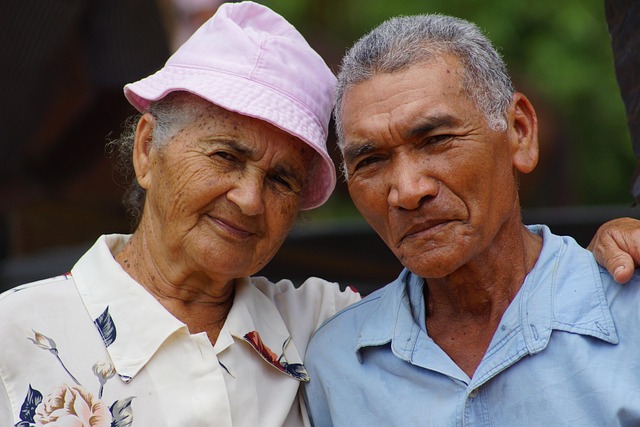Seeking grandparent rights in Oregon involves a structured legal process starting with filing a petition in circuit court, followed by service to parents and a hearing where both sides present evidence. The court decides based on the child's best interest, considering factors like time spent together. This process is crucial for grandparents aiming to preserve familial bonds and involves petition filing, hearings, evidence submission, and a final court decision, with post-judgment steps ensuring its enforcement. Support from legal aid societies, advocacy groups, and support groups can help navigate this complex process.
In Oregon, grandparent rights allow grandparents to seek legal visitation with their grandchildren. This comprehensive guide outlines the intricate steps of the Oregon court process for establishing or preserving these rights. We explore everything from understanding the legal framework and grounds for filing a petition, to initiating the legal process, navigating court hearings, and post-judgment appeals. Essential resources and support options are also provided for grandparents aiming to strengthen their bond with their grandchildren through the court system.
- Understanding Grandparent Rights in Oregon
- Grounds for Filing a Petition
- Initiating the Legal Process
- Court Hearings and Procedures
- Post-Judgment Steps and Appeals
- Resources and Support for Grandparents
Understanding Grandparent Rights in Oregon

In Oregon, grandparent rights refer to the legal standing and protections afforded to grandparents regarding their involvement in their grandchild’s life. These rights can be crucial for maintaining familial connections when a child’s parents are no longer together or unable to care for them. Understanding the grandparent rights court process is essential for anyone looking to navigate this aspect of family law. The process involves petitioning the court, presenting evidence of a significant relationship with the grandchild, and demonstrating that it would be in the child’s best interest to have grandparent involvement.
The Oregon court process for grandparent rights typically begins with filing a petition in the appropriate circuit court. This is followed by service of the petition to the legal parents and any other necessary parties. The court then schedules a hearing where both sides present their cases, including evidence of the grandparent-grandchild relationship and the benefits of granting or denying grandparent rights. Ultimately, the court makes a decision based on the best interest of the grandchild, balancing factors such as time spent together, the quality of that relationship, and the potential impact on the family unit.
Grounds for Filing a Petition

In Oregon, grandparents seeking recognition and involvement in their grandchildren’s lives may file a petition to establish or restore grandparent rights. The grounds for filing such a petition are typically centered around the best interests of the child. This can include situations where the parents of the minor child are no longer together, have died, or are unable to provide care due to various circumstances like substance abuse, mental health issues, or incarceration. Grandparents may also seek custody or visitation rights if they can demonstrate a pre-existing substantial relationship with the child and that their involvement is in the child’s best interest.
The court process for grandparent rights involves several steps, including filing a petition, service of process on the parents, potential hearings, and ultimately, a decision by the court. During this process, grandparents must provide evidence to support their case, such as affidavits, medical or mental health records, and testimony from witnesses who can attest to the grandparent-child relationship and its positive impact. It’s crucial for grandparents to understand the legal requirements and navigate the court process diligently to protect their rights and the well-being of their grandchildren.
Initiating the Legal Process

When pursuing grandparent rights in Oregon, initiating the legal process is a crucial step. The first action is to file a Petition for Grandparent Rights with the appropriate court. This document outlines the specific reasons and legal basis for requesting access to or custody of the grandchild. It’s essential to include relevant details such as the relationship between the grandparent and child, the circumstances leading up to the petition, and any existing parenting plans or court orders.
Once filed, the court will review the petition and determine if it meets the requirements for moving forward. If the petition is deemed complete, a hearing date will be scheduled, marking the beginning of the court process. During this phase, both grandparents and the child’s parents will have opportunities to present their cases, offer evidence, and argue their positions. The court will consider the best interests of the grandchild and make decisions based on these assessments.
Court Hearings and Procedures

In Oregon, pursuing grandparent rights involves a structured legal process that culminates in a court hearing. The first step is typically filing a petition with the appropriate court, stating the basis for grandparent visitation or custody. This document should include specific details about the relationship between the grandparents and the child, as well as why access is sought. After filing, the court will issue notices to all relevant parties, including the parents and, if applicable, the child’s legal guardian.
Once noticed, a hearing date will be scheduled where both sides present their cases. During this proceeding, a judge will assess the petition based on Oregon’s grandparent rights laws. Key factors considered include the child’s best interests, the quality of the grandparent-child relationship, and any existing parenting plans or court orders. The court may also request additional information or evidence before making a final decision, which is then communicated in writing to all parties involved, setting the stage for potential appeals or further legal actions if necessary.
Post-Judgment Steps and Appeals

After a judgment is made regarding grandparent rights, there are specific post-judgment steps that must be followed to ensure the legal process is complete. This typically involves finalizing any outstanding matters and ensuring the court’s orders are carried out. The first step is to prepare and file any necessary documents, such as an order for enforcement or modification, if changes need to be made to the original decision. These documents should outline the specific actions required to facilitate grandparent visitation rights.
Regarding appeals, there may be instances where one party disagrees with the court’s ruling on grandparent rights. In such cases, an appeal can be filed within the designated time frame, usually a limited period after the judgment is rendered. This process allows for further review and consideration of the case by a higher court, offering an opportunity to challenge or affirm the lower court’s decision regarding grandparent rights.
Resources and Support for Grandparents

Grandparent rights can be a complex legal matter, and navigating the Oregon court system can be daunting. Fortunately, there are numerous resources available to support grandparents throughout this process. Many organizations offer assistance tailored specifically to grandparent rights court cases. These include legal aid societies, advocacy groups, and non-profit organizations dedicated to family law. They provide guidance, information, and even representation at reduced rates or for free.
Additionally, local bar associations often have referral services that can connect grandparents with qualified attorneys specializing in family law and grandparent rights. Support groups are another valuable resource, offering a safe space for grandparents to share experiences, ask questions, and gain support from others going through similar situations. These resources empower grandparents to understand their rights, make informed decisions, and successfully navigate the court process in Oregon.














